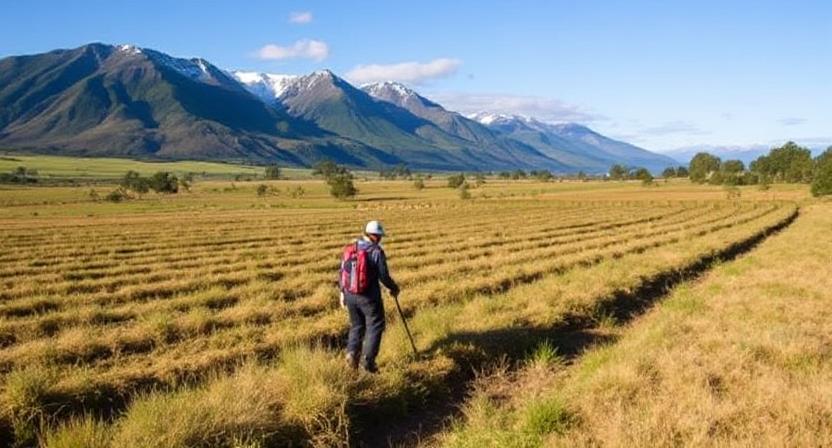n an attempt to tackle persisting labor shortages in major industries such as agriculture, forestry, and tourism, the government of New Zealand plans to unveil two new work visas for overseas workers. The move, announced by Immigration Minister Erica Stanford, is part of the overall effort by the country to aid suffering industries that cannot access skilled labor. The Global Workforce Seasonal Visa and Peak Seasonal Visa will go on sale in December 2025 and address both the short-term and long-term needs of employers struggling with severe labor shortages.
Global Workforce Seasonal Visa: Attracting Skilled and Specialized Workers
The Global Workforce Seasonal Visa is designed for specialized and highly skilled workers in sectors such as rural contracting, winemaking, and chairlift operations. This visa allows individuals to enter New Zealand as many times as they like within a three-year period, providing flexibility for workers and businesses alike.
However, to maintain the visa, holders will need to spend at least three months out of every 12 months overseas before re-entering New Zealand. This requirement ensures that the visa system continues to attract a dynamic, international workforce while balancing the needs of New Zealand’s economy and labor market.
Minister Erica Stanford emphasized that the Global Workforce Seasonal Visa aims to provide short-term solutions to improve the economy, targeting industries that require specialized expertise. She stated, “The opportunity that I have in immigration are those short-term levers to help improve the economy,” highlighting the importance of addressing workforce gaps to ensure economic growth and sector stability.
Peak Seasonal Visa: Supporting Short-Term Agricultural and Aquaculture Workers
In addition to the Global Workforce Seasonal Visa, the Peak Seasonal Visa targets lower-skilled workers, particularly in agriculture and aquaculture. This visa will allow individuals to stay in New Zealand for up to seven months, helping businesses in these sectors address labor shortages during peak seasons. Eligible roles under the Peak Seasonal Visa include positions in meat and seafood processing, calf-rearing, and wool handling.
Applicants will need to have at least one season of relevant experience before applying for the visa. Additionally, workers must leave New Zealand for at least four months before they can apply for a renewal, ensuring that the visa remains a short-term solution and doesn’t contribute to long-term migration patterns.
This visa was introduced in response to businesses’ requests for a more effective way to “surge capacity” during busy times when local labor is unavailable or when businesses struggle to hire from within the country. It provides temporary relief for sectors like agriculture, which are essential to New Zealand’s economy, but often face staffing challenges during peak seasons.
Visa Requirements and Support for Employers
Under both visa schemes, employers must follow certain regulations to ensure they are supporting local workers first. Specifically, Peak Seasonal Visa holders must have their job positions advertised locally before hiring overseas workers, ensuring that domestic employment opportunities are prioritized.
On the other hand, the Global Workforce Seasonal Visa is exempt from this requirement, offering employers more flexibility in filling positions without the need to advertise locally first. This makes it an attractive option for companies that need to quickly recruit specialized workers.
For the Peak Seasonal Visa, health insurance is required for workers staying in New Zealand for more than three months, whereas Global Workforce Seasonal Visa holders will be eligible for publicly funded healthcare. This ensures that workers’ health needs are met during their stay in New Zealand.
Applications Open in December: Replacing Interim Specific Purpose Work Visa
Both the Global Workforce Seasonal Visa and the Peak Seasonal Visa are set to replace the interim Specific Purpose Work Visa, which was introduced last year to meet immediate workforce demands. The interim visa allowed workers to stay for up to nine months, but it will now be replaced by these more targeted visa options, designed to cater to the specific needs of New Zealand’s agricultural, forestry, and tourism sectors.
Applications for both new visa types will open on December 8, 2025, giving businesses and workers a clear pathway to filling critical roles in the country. By addressing workforce shortages through strategic immigration policies, New Zealand aims to maintain its global competitiveness and continue growing its economy in key industries.
A New Era for New Zealand’s Workforce Immigration
introduction of the Global Workforce Seasonal Visa and the Peak Seasonal Visa, New Zealand is moving in a positive direction to alleviate agricultural, forestry, and tourism labor shortages, all while preserving a balanced and sustainable immigration system. By focusing on skilled workers and temporary workers, the nation is making sure that its key industries continue to be robust and that its businesses continue to flourish.
While New Zealand grapples to incorporate these new avenues of immigration, it is forging a path forward for how nations can deal with demands for labor and sustain economic growth through carefully planned, well-managed immigration programs.
Source - https://www.travelandtourworld.com













